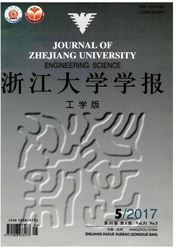

 中文摘要:
中文摘要:
针对固定床吸附层析技术用于蛋白质体外重折叠复性时,折叠聚集中间体易聚集造成床层堵塞等问题,将扩张床吸附层析技术应用于重组人γ-干扰素包涵体蛋白质的复性研究,并与脲浓度线性梯度法相结合,考察了脲梯度长度和脲终浓度对重组人γ-干扰素复性的影响.复性后的重组人γ-干扰素的纯度达90%;较长的脲梯度长度和合适的脲终浓度有利于蛋白质的复性;在较优的实验条件下,复性后的重组人γ-干扰素收率为53.7%,比活达9.75×10^6IU/mg.脲梯度扩张床吸附层析法具有处理量大的优点,能有效地复性重组人γ-干扰素包涵体,并能实现复性和分离包涵体蛋白质过程的集成化.
 英文摘要:
英文摘要:
To solve the problems of blocking the bed by aggregates in the refolding of recombinant proteins in vitro using packed bed adsorption chromatography, expanded bed adsorption chromatography (EBA) was introduced as the protein renaturation system. The refolding of recombinant human interferon-γ (rhIFN-γ) inclusion bodies was realized by gradually decreasing the concentration of urea in the EBA column after the denatured rhIFN-γ proteins had bound onto the gel. The effects of urea gradient length and final urea concentration on the refolding were investigated. The purity of the refolded rhIFN-γ was up to 90 %, and high urea gradient length and moderate final urea concentration were favorable for the refolding process. Under optimum conditions, the specific activity of rhIFN-γ was up to 9.75 × 10^6 IU/mg and protein recovery was up to 53.7 %. The results showed that the denatured rhIFN-γ was refolded efficiently by EBA with urea gradient, which had the unique capacity for processing large amounts of samples with the refolding and separation process being carried out simultaneously.
 同期刊论文项目
同期刊论文项目
 同项目期刊论文
同项目期刊论文
 期刊信息
期刊信息
